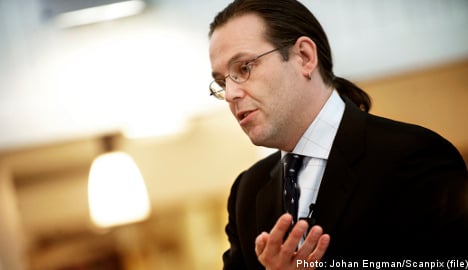However, the IMF has cautioned that its outlook for Swedish growth is uncertain, saying that the Riksbank should enact a “gradual and cautious” tightening cycle with regards to raising the repo rate.
The uncertainty regarding Swedish growth has increased in step with the debt crisis in Europe that gained momentum in the spring, according to the IMF.
Peter Doyle, who led the annual review of Sweden’s economy, sprinkled praise on the Riksbank and the government for their handling of the crisis.
He could not think of anything that could have been done better.
“I believe that the answer is no, despite there having been a huge economic shock,” Doyle said in a statement. “The government has allowed the budget surplus to turn into a deficit in order to keep demand up and the Riksbank has kept interest rates down.”
The IMF also welcomed the Financial Supervisory Authority’s (Finansinspektionen) proposal to place a cap on mortgages at 85 percent of the market value of the dwelling to be purchased. According to the IMF, this ceiling can act as insurance against undesirable consequences from excessive lending to home buyers.
The IMF noted that Sweden’s GDP fell by 5 percent last year while unemployment rose to over 9 percent and the financial strength of the export industry deteriorated.
At the same time, Doyle thinks that the current turmoil in Europe is hard to judge. He feels that the Riksbank should take into account these concerns at the next interest rate meeting.
“It’s hard for anyone to assess what the worries involve, but it is definitely something one should consider,” he said. “However, it is possible that the situation will be clearer in July. We think the Riksbank’s interest rate path is otherwise a reasonable path on the basis of developments in Sweden.”



 Please whitelist us to continue reading.
Please whitelist us to continue reading.
Member comments